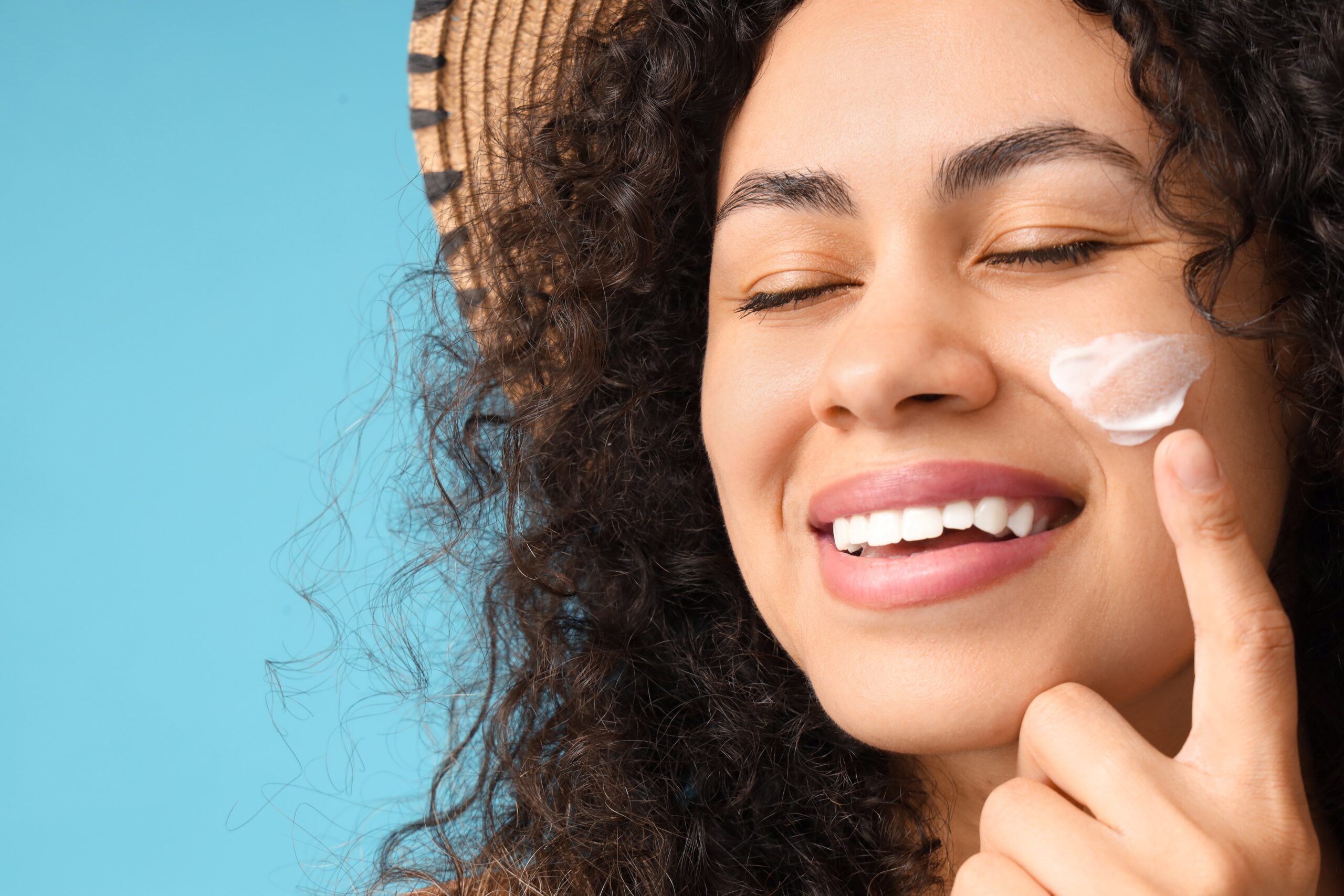How SPF a day keeps the wrinkles at bay

Have you applied your SPF today? Even on a grey day, putting on your sun cream is a must. Yes, that’s right; it isn’t just for holidays! In this post, I’ll explain why wearing SPF, daily, will help you look younger for longer, the true impact of sun on your skin, and what to look for in a good SPF.
How the sun affects our skin
We all love the sun. That warming sensation and gorgeous glow we get from it. Summer finally rolls around, and we’re outside as quick as you can say “flip-flop” (we have to make the most of it in the UK, right?). But how many of us can honestly say that we wear SPF each and every day?
Before we take a look at SPF and why we should all be wearing it more often, it’s important to understand the huge impact the sun has on our skin and what exactly you’re protecting yourself from. You see, the sun emits harmful ultraviolet (UV) radiation – in particular 2 types that affect our skin: UVA rays and UVB rays.
DNA damage
We’ll start with the one we’re probably all familiar with – even if you don’t realise it. UVB rays are the ones we’re all taught to protect ourselves from. These are the rays that can burn us and cause direct DNA damage to our skin cells. This, in turn, can lead to skin cancer, including melanoma, basal cell carcinoma, and squamous cell carcinoma.
Premature ageing
What you might not realise is that the sun’s UVA rays are also responsible for photoageing. These rays penetrate our skin on a deeper level than UVB rays, and increase free radicals that damage our collagen and elastin fibres. This means skin loses its firmness, starts to sag more quickly, and we see more signs of ageing, such as increased wrinkles. And…UVA rays are able to pierce through clouds and pour in through our windows, meaning that you need to be covered even on a cloudy day. Even if you’re at home or in the car.
Thankfully, using a great sunscreen will help protect you from these harmful rays. But what exactly is SPF, and how does it work?
What is SPF?
SPF: three little letters we often hear – mostly in the summer. But sunscreen isn’t just for hot days and holidays. Instead, we should be applying it every morning, and topping it up on a regular basis.
SPF stands for sun protection factor, and serves to protect your skin from UVA and UVB rays.
As you would expect, the higher the factor, the more protection from the sun’s rays. So if, for instance, you buy an SPF that’s factor 50, you’re better protected than if you wear SPF30. It technically comes down to how much time you can stay in the sun once your sunscreen’s been applied.
Anything below SPF30 is generally not considered high enough to keep you protected from these harmful rays.
What does SPF do?
So, now you know what SPF is, but what exactly does it do? Here are a handful of reasons why you’ll want to make sure it becomes a key part of your daily skin care routine…
Protection from UV radiation
Good SPF coverage helps shield skin from harmful UVA and UVB rays, reducing the risk of sunburn, photoaging, and skin cancer.
Preventing skin damage
Regular use of SPF prevents collagen breakdown, maintaining skin’s firmness, elasticity, and overall health.
Long-term skin health
Consistent application of SPF slows down the ageing process, preserving the skin’s youthful appearance and reducing the likelihood of developing sun-induced pigmentation and wrinkles.
In summary, SPF is essential for protecting the skin from the adverse effects of UV radiation, maintaining collagen integrity, and ensuring long-term skin health and appearance.
Key things to know about SPF
There’s a lot of misinformation out there regarding SPF, so here are a few things worth noting…
The SPF in your makeup isn’t enough
You might be thinking, “Ah, it’s OK; There’s SPF in my daily foundation.” But, unfortunately, the SPF within other products, such as makeup, doesn’t give enough coverage, and is often too low to protect against the sun’s harmful ultraviolet rays. So, it’s best to find a good sunscreen that will keep you covered every day.
Top up your SPF every 2 hours
It’s not just a case of apply and forget with sunscreen. In fact, with most, you’ll want to reapply every couple of hours to get maximum coverage.
There are different types of SPF
You may have heard of two different types of sunscreen: mineral sunscreen and chemical sunscreen, but you are not quite sure what the difference is.
Chemical sunscreens contain organic compounds like oxybenzone and avobenzone, which absorb UV radiation and convert it into heat, releasing it from the skin.
Though generally thin and easy to apply, they can lead to irritation.
Mineral sunscreens, on the other hand, use inorganic compounds such as zinc oxide and titanium dioxide to act as physical barriers, reflecting and scattering UV radiation.
These sunscreens are often thicker and can leave a white cast on the skin.
SPF should be a daily step in your skincare routine
Making SPF a key part of your daily skincare routine is really one of the most effective things you can do – not just when it comes to protecting your skin from sunburn, but also to protect it from premature ageing.
Want to find an SPF that will slot straight into your skincare routine, keeping your skin safe and youthful?
Let’s have a chat about how you can get your skin in check.
